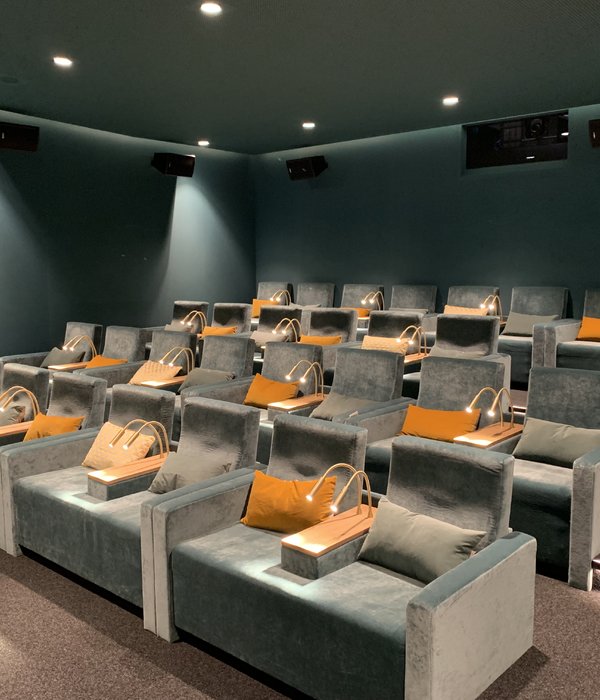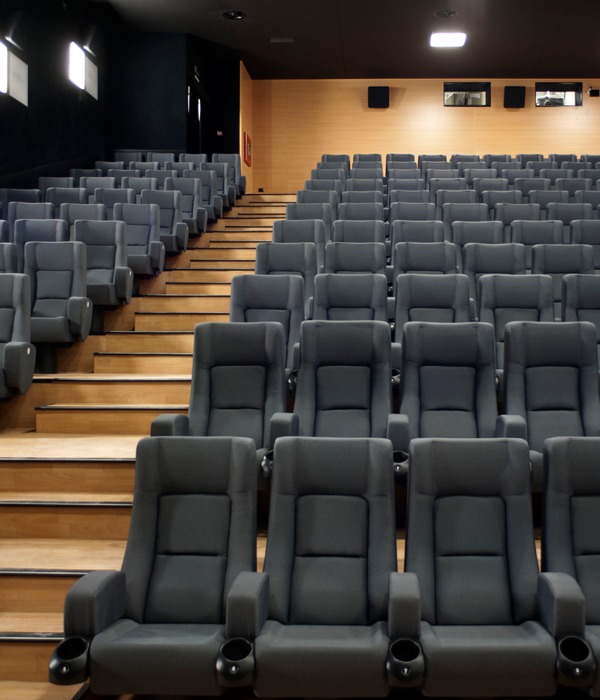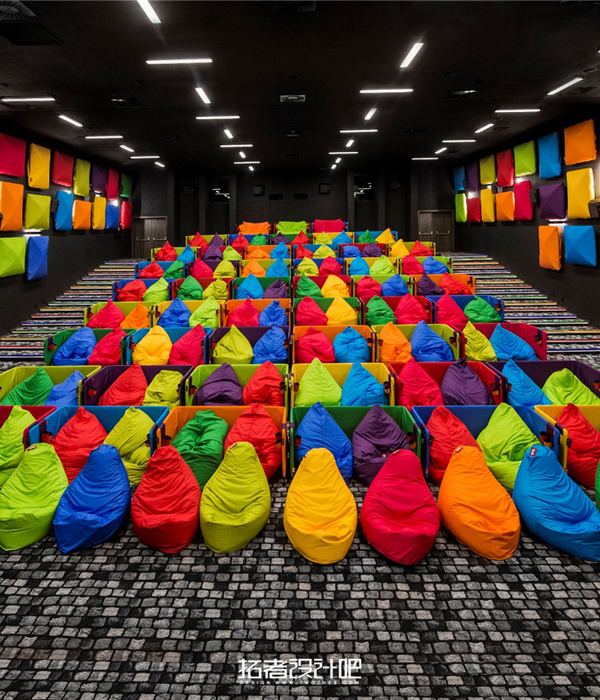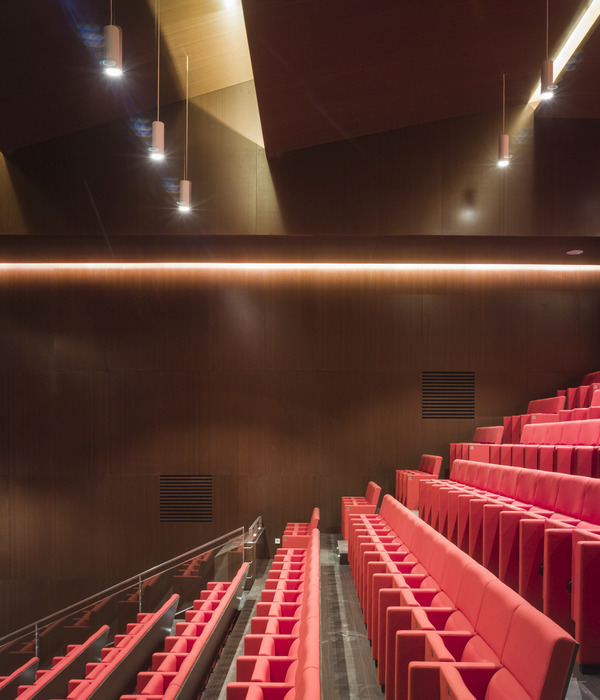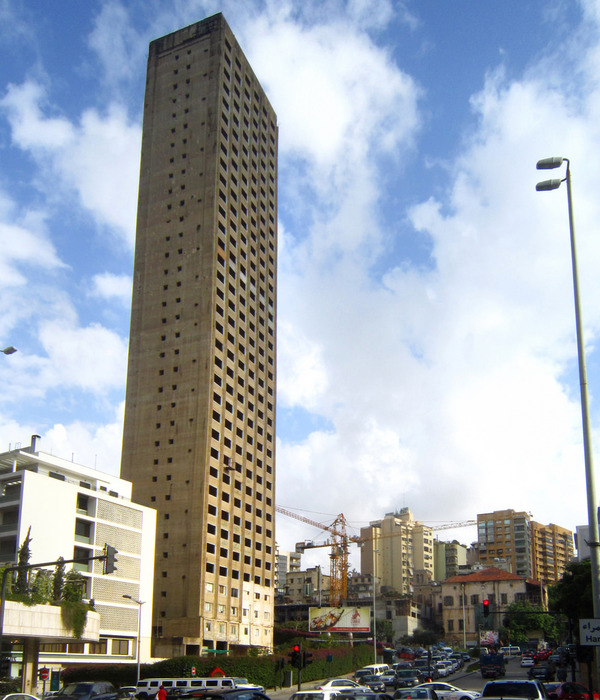受邀参与到Sumec服装展览空间的设计,空间将从设计、制版到生产全方面的展示服装设计师的工作日常。因此在设计上以布料的柔软物性作为主题,形塑了一个软性模糊的展览空间,同时也平衡着展览与工作两种不同的功能需求。
Invited to participate in the design of SUMEC exhibition, the space will show the daily work of clothing designers in all aspects from design, pattern making to production. Therefore, the proposal takes the soft physical properties of the fabric as the theme, forming a soft and ambiguous exhibition space. At the same time, it also balances the two different functional requirements of exhibition and work.
▼项目概览,overall of the project ©Emma
柔软的墙 Soft wall
设计启发于织物的柔性与重力感。平面被非线性的“柔软的墙”划分成设计区,物料缝纫区和生活区。每个区域仅放置一个元素来对应功能。一段“柔软的墙”由矮墙与布帘构成,矮墙的高度被设计成工作与休憩所需的私密感受的模数;布帘则放置在视平线的高度,将更多的交流与互动罩上一层朦胧。空间时刻处于混沌与清晰的动态,置身其中仿佛行进在流体中,给工作者和观展者一次反日常的感官体验。
▼分析图,diagram ©衡建筑
The design is inspired by the flexibility and gravity of the fabric. The plane is divided into a design area, a material sewing area and a living area by a non-linear “soft wall”. Only one element is placed in each area to correspond to the function. A section of “soft wall” is composed of low walls and curtains. The height of the low walls is designed to be the modulus of the privacy required for work and rest; the curtains are placed at the height of the eye level, allowing more communication and communication. The interaction covers a layer of haziness. The space is always in chaotic and clear dynamics, and being in it seems to be moving in the fluid, giving workers and visitors an anti-daily sensory experience.
▼矮墙体现出布料的柔软物性,The low wall reflects the softness of fabric ©Emma
▼平面被非线性的“柔软的墙”划分成设计区,The plane is divided into a design area by “soft wall” ©Emma
▼矮墙的高度被设计成工作与休憩所需的私密感受的模数,The height of the low walls is designed to be the modulus of the privacy required for work and rest ©Emma
▼物料缝纫区,material sewing area ©Emma
▼生活区细部,detail of the living area ©Emma
柔性体验 Flexible experience
艾多阿尔托 奇立达(Edoardo Chilida)说:”空间是我们周围事物中最具活力的,就像精神的本质”。我们希望空间能裹挟着观展者流动穿梭于其内。“柔软的墙体”视觉上是被竖向吊起,与悬浮的吊顶片段整合成为空间中的漂浮系统。在布帘的开合变化间,空间也切换着它的面貌,在通透清晰与模糊混沌间切换。如同一本书,打开之时,其内容瞬间迸发而出;合闭时,又瞬间归于静谧。空间的形态,理解与使用取决于其观者。
Edoardo Chilida said: “Space is the most dynamic of the things around us, just like the essence of spirit”. We hope that the space can lead visitors to flow through it. The “soft wall” is visually hoisted vertically and integrated with the suspended ceiling segment to form a floating system in the space. During the opening and closing of the curtain, the space also switches its appearance, switching between transparent and clear and fuzzy and chaotic. Just like a book, when it is opened, its content bursts out instantly; when it is closed, it instantly returns to tranquility. The form, understanding and use of space depend on its viewers.
▼布帘的开合间,空间在通透清晰与模糊混沌间切换,During the opening and closing of the curtain the space also switches its appearance ©Emma
▼空间裹挟着观展者流动穿梭于其内,Space can lead visitors to flow through it ©Emma
▼“柔软的墙体”在视觉上被竖向吊起,与吊顶片段整合成为空间中的漂浮系统,The “soft wall” is visually hoisted vertically and integrated with the suspended ceiling segment to form a floating system in the space ©Emma
▼空间细部,details ©Emma
舞台即路径 Stage& Path
空间中被各个分区所夹逼剩余的走道天然地有着某种戏剧化的属性,它能成为更富趣味的模特展现设计成果的舞台,而不同于服装设计师熟悉的T台式展现。T台展示往往将观者与模特的角色区分得泾渭分明,更多的是聚焦与呈现,难以为服装设计师提供客观与日常的反馈。空间中流动的路径则提供了一个模拟日常场景的机会,将聚焦式的T台秀转变为移动的观察,更好地服务设计师的工作。
The remaining aisles in the space clamped by various partitions ,naturally have a certain dramatic attribute. It can become a stage for more interesting models to show the design results, which is different from the T tabletop display familiar to fashion designers. T-stage shows often distinguish the roles of viewers and models. They are more focused and presented, and it is difficult to provide objective and daily feedback to fashion designers. The flow path in the space provides an opportunity to simulate daily scenes, transforming the focused catwalk show into mobile observation, and better serving the designer’s work.
▼走道成为更富趣味的模特展现设计成果的舞台, The remaining aisles become a stage for showing the design results ©Emma
▼平面图,Plan ©衡建筑
▼剖面图,section ©衡建筑
{{item.text_origin}}






